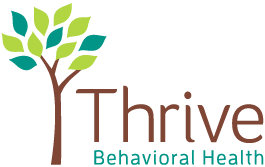How to help your child succeed in high school
- Offer a nutritious breakfast. Teens are known to sleep until the last minute, then rush off to school without eating, but this does not help them focus or learn. Make healthy foods available that they enjoy and can grab quickly, such as protein-rich breakfast bars, whole wheat waffles, trail mix, nuts, fruit and low-sugar yogurt.
- Encourage sleep. Many teens barely get six hours of sleep. Their brains and bodies are still growing, and a minimum of eight hours a day is required, but 9 to 10 hours is often ideal during this time of rapid physical and emotional growth.
- Make time for family. Whether it’s dinner together, an outing or a shopping date, be sure to carve out time together.
- Support homework time. Create a quiet, well-lit spot that encourages good work habits. Be available, so that your child can ask questions. Help establish a routine for getting homework done, put away, and turned in on time. Don’t pester or nag, but be aware and intervene when necessary.
- Beware of too many extracurricular activities. When children and their parents spend all day, every day juggling sports, music, dance and clubs, they can easily become burnt out. Sit down with your child and decide on one or two extracurricular activities. Even that will feel like a lot, especially if you have multiple kids.
- Volunteer at school, if you can. Your child will see and appreciate that you care enough to give your time to his school. For working parents, there are often helpful tasks you can do in the evening at home. Ask your child’s teacher how you can get involved.
- Attend parent-teacher conferences. Ask questions to help you understand how your child is doing, from your child’s standpoint and the teacher’s.
- Celebrate achievements, but don’t overemphasize grades. Perfection is an unattainable goal. Teens who are motivated to keep a perfect 4.0 GPA may feel intense inadequacy and self-reproach when reality hits later in life.
- Make your child’s school aware of any medical conditions. If your child has a medical condition, be sure to talk to the school. If your child requires medications nearby, provide an up-to-date prescription with clear, written instructions. Then show school staff how and when to administer the medication in an emergency. Too often, children do not have medication at school when they need it, or school staff waits too long to give it. In an emergency, minutes matter.
- Get to know your child’s friends. Ask yourself: Do the friends and families he spends time with share our safety and behavior choices?
- Ask questions. Know what’s happening in your child’s classes, what projects are due and when, and how your child is getting along with friends.
- Keep tabs on Internet use. Teens can easily get in over their heads in cyberspace. Parent filters can help, but you should also review their user history regularly. Also, keep the computer within eye-shot of your main living space.
- Teach your child proper cell phone use. Know that cell phones with Internet capabilities do not have parent filters. If you provide a cell phone, set limits and educate your child about inappropriate use, such as cyber-bullying and texting while driving.
- Share your high school experiences. This helps your child better understand that you encountered many of the same feelings and challenges that they face.
- Know your child’s friends and their families. It takes a village to raise healthy, safe kids.
- Be aware of behavioral changes. If you notice changes in your teen’s mood, grades, friends or appearance, pay attention and find out what’s happening with your child. These may be signs of
(link to depression page) or another serious illness. Please talk with us if you are worried about your teenager. - Keep talking and listen even more. Teens listen to what you say and watch what you do. They also want you to hear what they have to say — and don’t say. Try to be the parent you wanted and needed as a teenager. Be the parent your child will admire when he becomes a parent. It’s not easy! We are here to help, so please talk to us if you’re concerned about your teenager.
Help your teen prepare for life after high school
- Talk to your teen about career options. Help determine what kind of education and job experiences your teen will need after high school to reach their goals, but don’t overwhelm them. School counselors are a great resource for information.
- Look into colleges early on. If your teen plans to attend college, find out admission requirements for two- and four- year colleges during the first couple years of high school.
- Encourage your teen to volunteer. Help them identify opportunities for internships and job shadowing to provide a sense of responsibility and to get them excited about the future.
- Don’t worry if they change career plans frequently. It’s normal.

